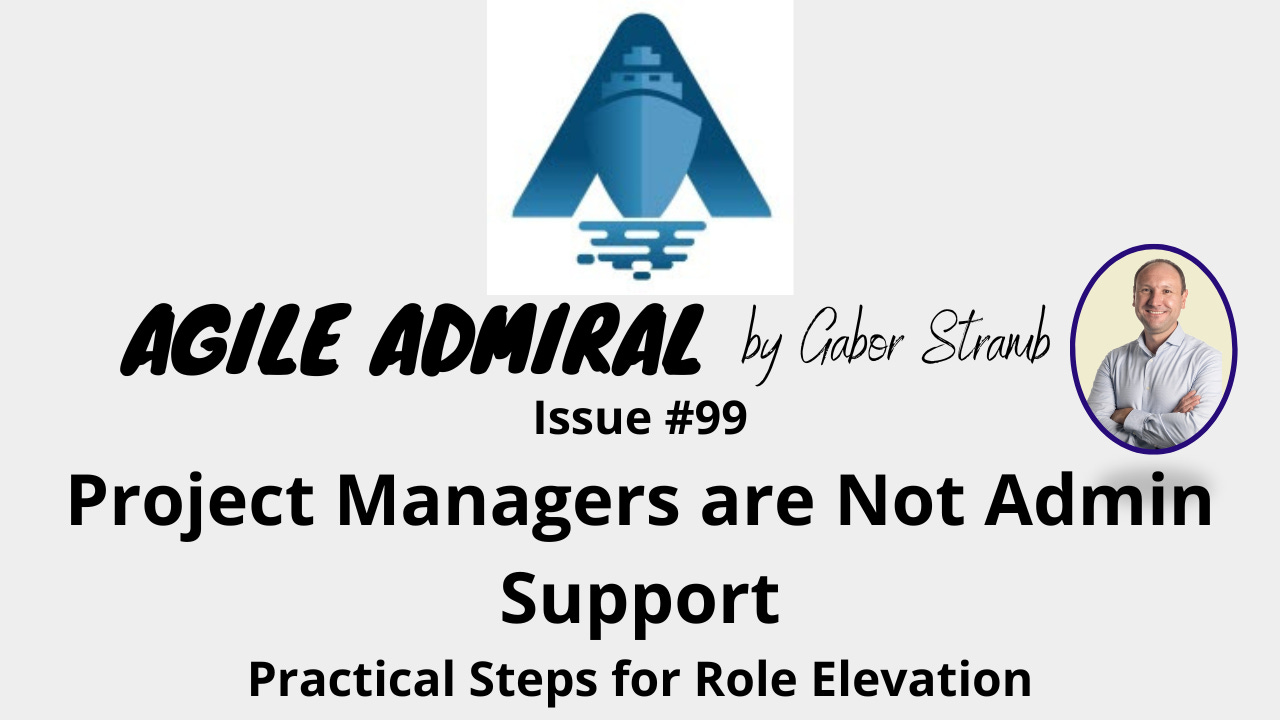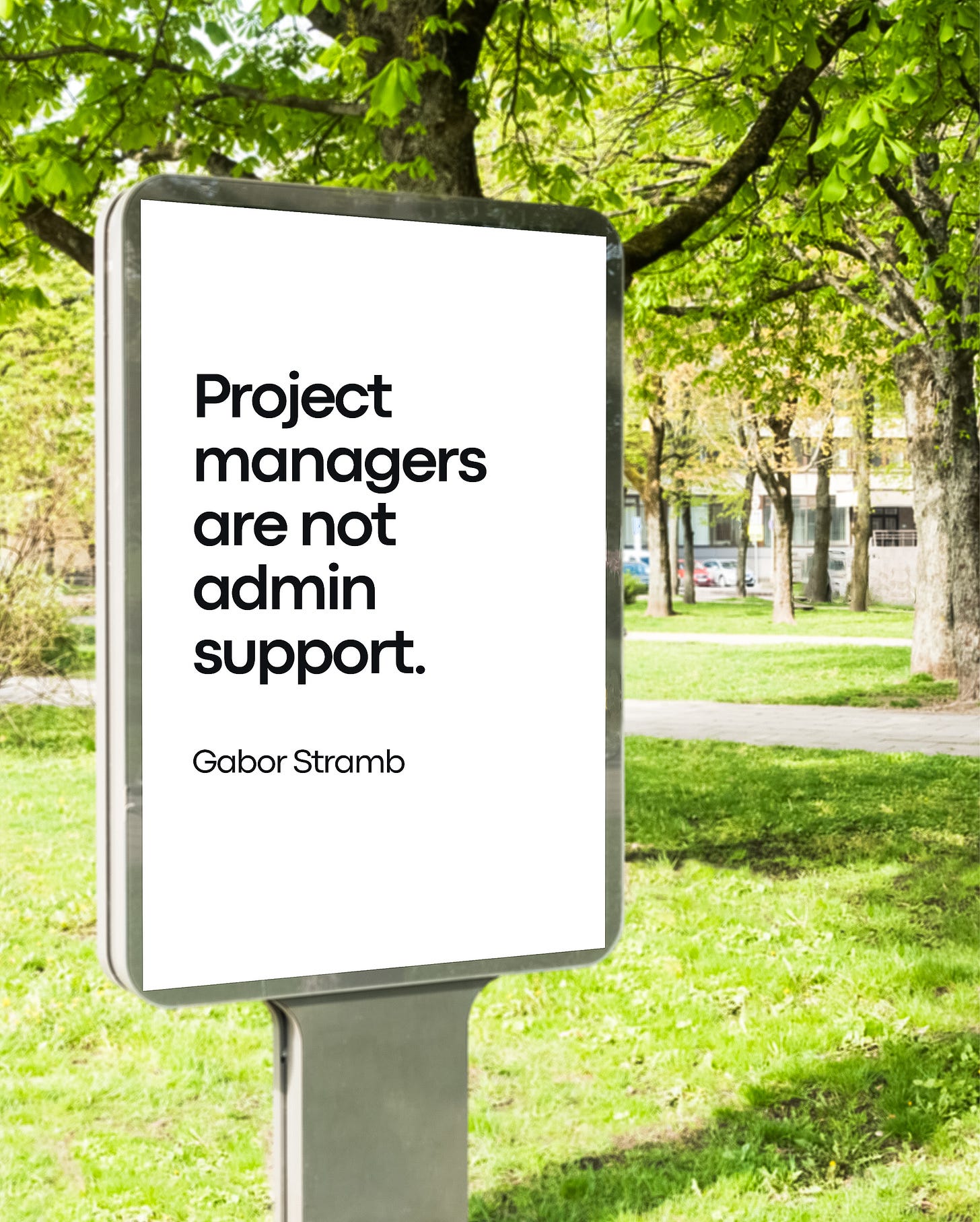A 3-minute read for experienced project managers ready to elevate their impact
Welcome to the Agile Admiral weekly newsletter. Your Essential Resource for Project Management Excellence.
Each week, I tackle reader questions about PMP preparation, how to implement PMP into real-life projects, and a Senior Project Manager career.
For more:
Junior vs Senior Project Manager | You cannot prevent all conflicts |
The Chaos Coordinator | The Project Habit You’re Probably Skipping |
If you've been managing projects for 7-10 years, you've likely encountered this scenario more times than you'd care to count: walking into a meeting where your expertise is reduced to "Can you send out the meeting minutes?" or "Make sure the status tracker is updated by Friday."
Sound familiar?
You're not alone.
Too often, PMs get reduced to:
Taking notes
Scheduling meetings
Updating trackers
After nearly a decade in the field, you've probably noticed that the most successful projects you've led weren't the ones where you had the most polished status reports. They were the ones where you anticipated the roadblock before it materialized, where you facilitated the difficult conversation that prevented a three-month delay, or where you identified the scope creep that could have derailed the budget.
Your Real Value Proposition
Your experience has taught you something that junior PMs are still learning: project management is fundamentally about creating clarity from complexity.
Consider the projects that have crossed your desk recently. How many suffered from:
Misaligned expectations between stakeholders who assumed they were on the same page
Scope ambiguity that led to costly rework and frustrated teams
Risk blindness where everyone saw the warning signs but no one connected the dots
Resource conflicts that could have been resolved with better planning and communication
They're strategic challenges that require your seasoned judgment, pattern recognition, and leadership skills.
The Three Pilllars of Strategic Project Leadership
1. Stakeholder Orchestration
Your years of experience have taught you that technical problems are rarely the biggest threat to project success—people problems are. You've developed the emotional intelligence to read between the lines of stakeholder communications, the diplomatic skills to navigate competing priorities, and the influence to align people around common goals without formal authority over them.
2. Strategic Risk Management
Novice PMs manage risks by maintaining lists and conducting periodic reviews. You, however, have developed an intuitive sense for where projects are vulnerable. You recognize the early indicators of scope creep, team burnout, or stakeholder disengagement. More importantly, you know how to address these risks before they require crisis management.
3. Delivery Excellence
This goes beyond ensuring tasks are completed on time. It's about optimizing team performance, removing impediments before they slow progress, and maintaining focus on outcomes rather than outputs. You understand that successful delivery isn't just about meeting deadlines—it's about delivering value.
Breaking the Cycle: Practical Steps for Role Elevation
Lead with Insights: Open stakeholder meetings not with administrative updates, but with strategic observations: "I've identified three trends across our workstreams that suggest we should adjust our approach to the Q4 rollout."
Propose, Don't Just Report: When you identify issues, come with solutions. Your experience gives you credibility to make recommendations, not just surface problems.
Set Boundaries Professionally: When asked to take on purely administrative tasks, respond with: "I can ensure this gets handled appropriately. Let me identify the best resource for this while I focus on [specific strategic priority]."
Your expertise in managing complexity, your pattern recognition across multiple project contexts, and your ability to see around corners are exactly what organizations need to navigate an increasingly complex business environment.
The question isn't whether you're capable of strategic project leadership—your track record proves you are. The question is whether you'll claim that role or continue allowing others to define your value proposition.
Project management is leadership, not paperwork. It's time to lead accordingly.
See you next week.
Follow me on LinkedIn | YouTube | Instagram
Truth bombs: You can pass PMP in 8 weeks, I’m happy to show you “how”. When you’re ready, follow the links below:
👉🏼Do it together - join the PMP Operation System
👉🏼Do it 1-on-1 - join 8-week coaching program
https://gaborstramb.com/special-offer





"project management is fundamentally about creating clarity from complexity"
I love the way you've phrased this.